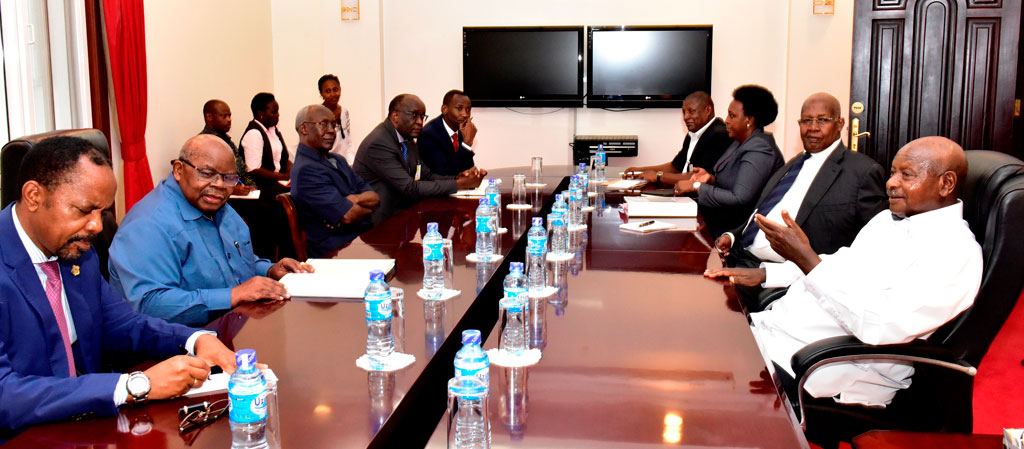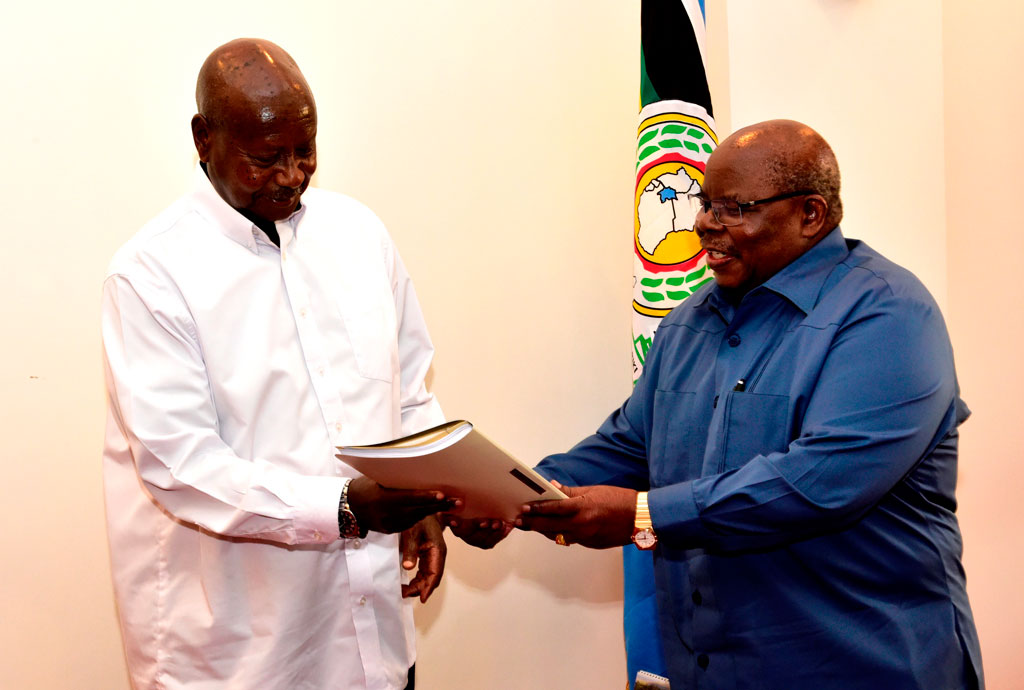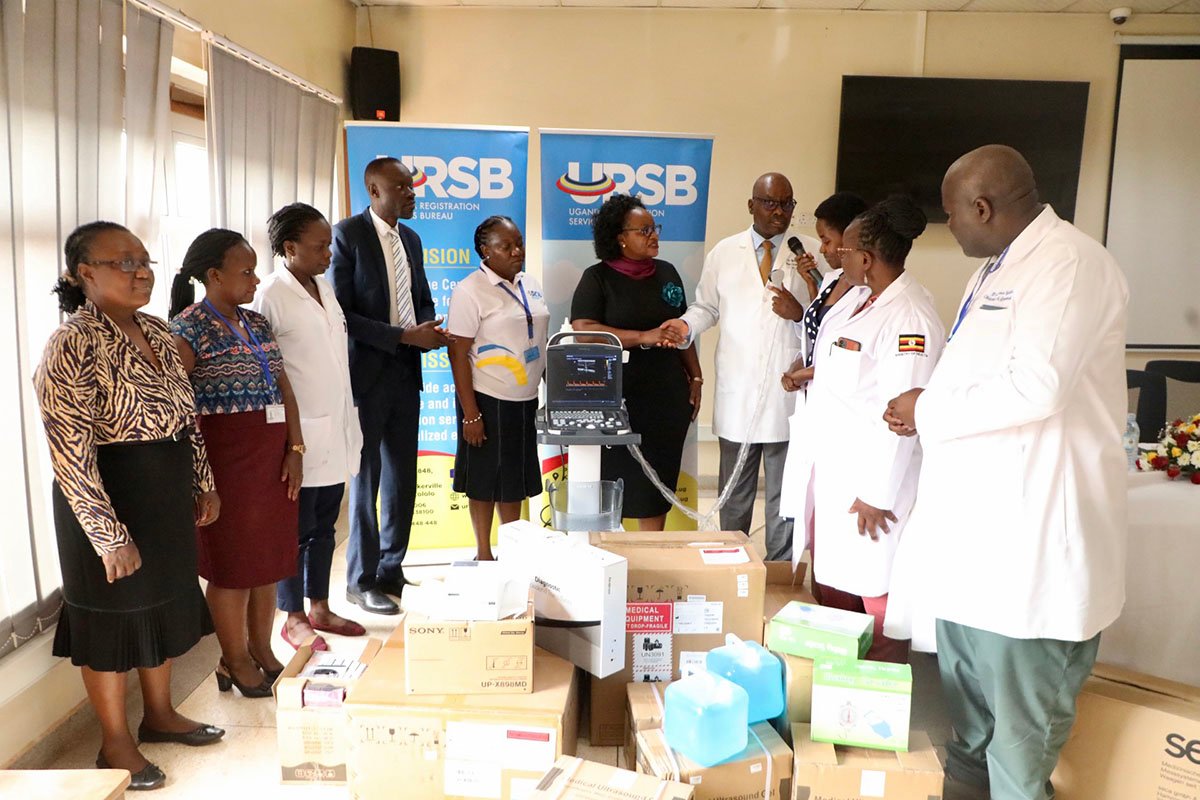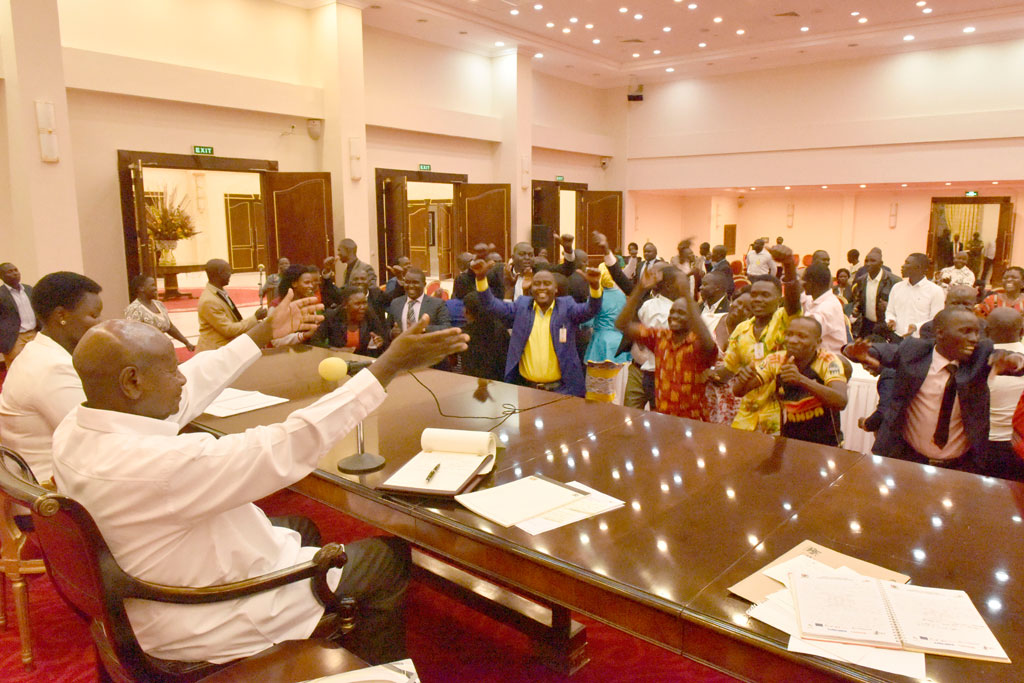President Yoweri Museveni has received a report on the process of the Inter-Burundian Dialogue from former Tanzania President Benjamin Mkapa who is the Facilitator of the Inter-Burundi Dialogue.
The Dialogue among various Burundian stakeholders aims at ending a political crisis in that country that erupted into a conflict in 2015.
Receiving the report yesterday at State House, Entebbe, President Museveni, who is the current Chairman of the East African Community, observed that the strategy to solve the East African Community (EAC) regional political conflicts should be premised on principle, taking into consideration the crucial value of historical sovereignty devoid of individual interests.
“Sovereignty means a strong historical foundation based on principle and strategy to manage regional affairs and to solve political challenges exhaustively in the region now and in future,” he said as he received the document from Mr. Mkapa and his committee members that included Ambassadors David Kapya, Aziz Mlima, Machocha Tembele, Leonard Onyonyi and Uganda’s National Political Commissar (NPC) Brig. Gen. Henry Matsiko.

President Museveni said that Burundi should build a new constitution that can implement security and protection of all the people there so that Burundi nationals to return home and be able to live in peace.
He said that there should be no gamble in the Burundi political resolution.
Mr. Museveni commended Mr. Mkapa and his committee for the report and noted that the document is a well-equipped instrument that can help resolve the Burundian political conflict.
The document is to be tabled to the forthcoming East African Community Heads of State Summit later this month in Arusha Tanzania.
In his remarks, Mr. Mkapa told President Museveni that the report hinges on the political roadmap of the crucial elements for the Burundi government to consider with a view to introducing a multiparty political dispensation for the benefit and safety of all key players in the country.
Mr. Mkapa mentioned the Government of Burundi, the opposition groups, the EAC member states, women and youth groups in that country, civil society, the media and the international community, among others, as stakeholders to the process of the Burundi Dialogue.

















